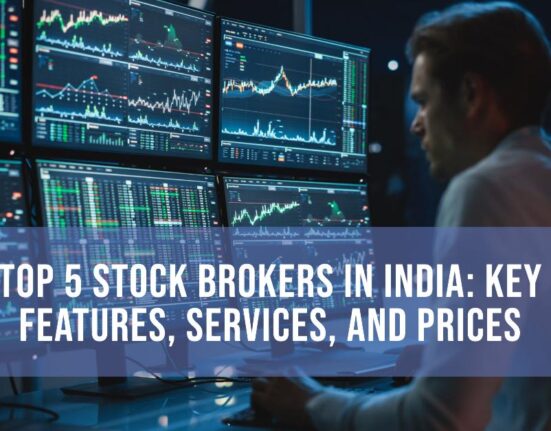Choosing a stockbroker is a tricky process. Sure, you could just pick a recognised brand name and hope for the best. But would that be a sound financial decision?
If the broker you pick charges higher fees than the competition, you are throwing away some of your investment account each year. Fees are investing costs that can be reduced or avoided altogether with a savvy choice of investment platform.
Likewise, if you find yourself in an unforeseen situation and require your brokers help – will you come to regret your decision to pick a firm with an underperforming customer service department?
A stockbroker or investment platform is like an investing ‘partner’. You may be with them for the next twenty years. A trading fee price that you say ‘yes’ to right now, may be incurred over 100 times over the next few years, therefore choosing an investment account is a financial decision which you should not rush.
Profitability
I like to check that the investment platform I’m signing up to is making a profit. This isn’t always readily available information. Once check you could perform is to find the legal name of the company (usually found in the website footer) and look at their latest accounts filed on Companies House. The income statement gives a snapshot of their performance in a recent period, however this is not ‘live’ information and could be almost two years out of date.
Still, if the company made money two years ago then this gives me confidence that the management team has found a business model which works, and isn’t still ‘hoping’ that they can transform the business into a profitable entity by changing pricing etc.
Sign-up deals
I do look for sign-up deals because these can be occasionally a good idea. The problem with a sign-up deal is that it’s a temporary benefit, whereas the underlying pricing is something you’ll be paying for the next few years.
However, if the sign-up deal is a dead-cert and has a clear monetary value, then you’d be foolish to ignore this completely when comparing the fees of different companies.
Underlying pricing
I am a passive investor and try to spend as little as possible on investing costs like stockbroker trading commissions.
Therefore I initially performed market research to find out:
- Which investment platforms charged little or no ‘account fees’?
- Which investment platforms charged the lowest trading fees?
One thing I quickly discovered was that the stockbrokers which took these positions were very separate. If a broker has a low trading fee, their account fee tends to be higher and unavoidable. If a broker has a high trading fee, their account fee is minimal or may disappear entirely if you fund your account with a minimum 5 figure sum at all times.
Account fees were particularly important to me, because I tend to make few investments and therefore the account fees are usually the largest part of the total fee I pay to brokers each year. This will not apply to everyone. Anyone with a portfolio of individual stocks and shares will almost certainly spend more on trading fees.
I discovered that some stockbrokers indeed waive their account fee (or reduce it to a fraction of a percent) if you keep the account funded with a minimum sum. This was a win for me, as it meant that I could effectively keep a portfolio with the broker for virtually nothing, only paying when I infrequently bought more shares.
Some accounts also have fee-free trading in funds. This is also ideal, as in combination with a low account fee, you will find yourself only paying a few pounds per year in fees.






